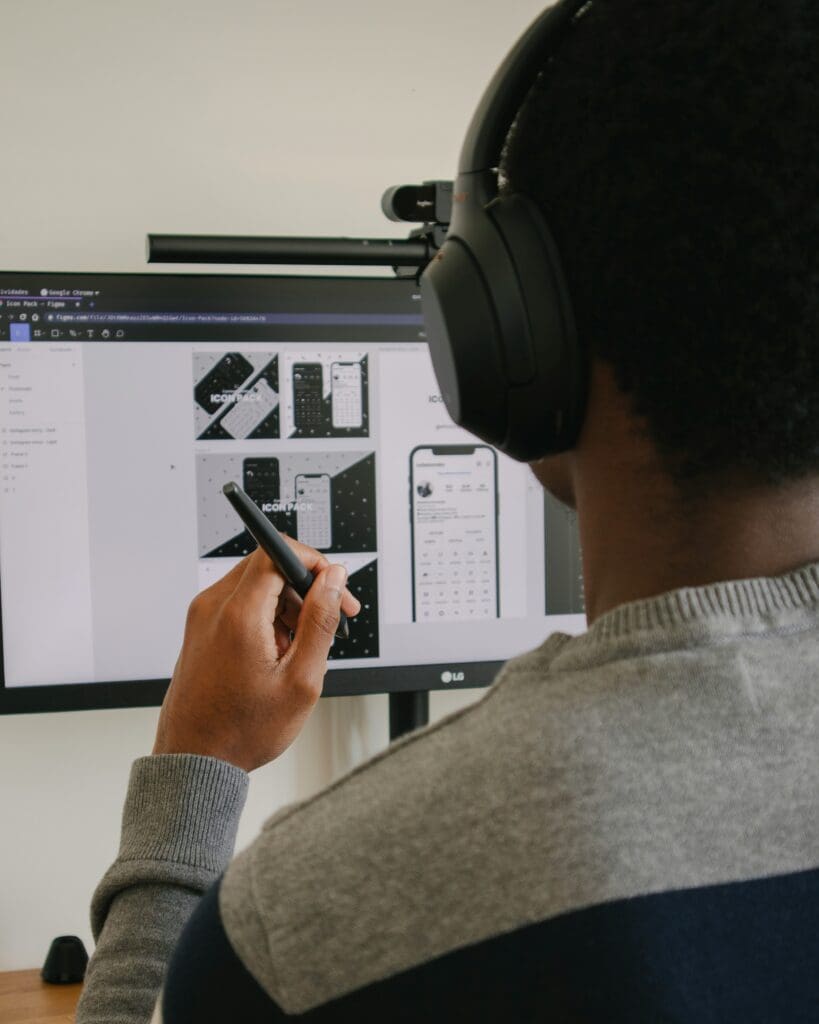Introduction to Educational Games in History

Educational games have become an increasingly prominent tool in history education, offering innovative methods for engaging students and enhancing their learning experiences. These games not only serve as a means to impart historical information but also facilitate an interactive environment where students can explore complex topics in a fun and engaging manner. By integrating play into the curriculum, educators unlock opportunities for deeper understanding and retention of historical facts.
The significance of utilizing educational games in the history classroom lies in their ability to adapt to diverse learning styles. Some students may grasp concepts more effectively through visual representation, while others might thrive in auditory or kinesthetic modalities. Games bridge these gaps, providing a multifaceted approach to learning history. Furthermore, they often stimulate critical thinking and problem-solving skills as students navigate through different historical scenarios, encouraging them to analyze and evaluate events rather than merely memorize dates and names.
Additionally, educational games in history foster collaboration and communication among peers, allowing students to share insights and strategies as they progress through challenges. This teamwork aspect not only builds camaraderie but also enhances social skills. Moreover, the competitive element introduced by games can motivate students to engage more deeply with the subject matter, pushing them to explore topics beyond the prescribed curriculum.
As educators increasingly recognize the myriad benefits of educational games, particularly in the realm of history, these tools are becoming integral to modern teaching methods. By blending entertainment with education, games make history relevant and accessible, preserving the rich narratives of the past while igniting a passion for learning in the present. This introduction underscores the potential of educational games as powerful assets in fostering effective history education.
Benefits of Using Games in History Education

Incorporating games into history education offers a plethora of benefits that can greatly enhance the learning experience for students. One of the primary advantages is the promotion of critical thinking skills. Games often present historical scenarios that require students to analyze information, evaluate options, and make decisions based on their interpretations. This active engagement fosters deeper understanding and retention of historical facts, as students are not merely memorizing dates and events but are interpreting them within a broader context.
Another significant benefit is the encouragement of collaboration among students. Many educational games are designed to be played in teams, which promotes cooperative learning. Working together towards a common objective helps students develop essential teamwork skills while sharing diverse perspectives on historical events. Such collaboration can lead to richer discussions and a more comprehensive grasp of the subject matter, as peers help each other navigate complex historical narratives.
Moreover, utilizing games in history education can dramatically boost student motivation and interest in the subject. Traditional teaching methods may sometimes lead to disengagement, especially among younger students. However, the interactive nature of games transforms learning into an enjoyable and dynamic experience. As students immerse themselves in gameplay, they are more likely to develop a genuine enthusiasm for history, seeing it not just as a subject in school but as a fascinating tale filled with human stories and events.
Lastly, educational games cater to different learning styles, making history accessible to a wider range of students. Visual learners, kinesthetic learners, and auditory learners can all benefit from various game formats, ensuring that every student finds a way to connect with the material. This inclusive approach not only meets individual academic needs but also enhances classroom dynamics, creating an environment where diverse learning preferences are celebrated and utilized.
Types of Educational Games for History Class

Educational games offer a dynamic platform for engaging students in history classes, catering to diverse learning styles and preferences. These games can be categorized into several distinct types, each providing unique benefits and approaches to learning. The primary types include board games, video games, role-playing games, simulation games, and online interactive lessons.
Board games serve as an excellent tool for fostering collaboration and strategic thinking among students. Often designed around historical events or themes, these games encourage players to engage with the material actively. They can help learners understand complex historical contexts and decision-making processes by requiring them to adopt various perspectives, which is crucial for developing critical thinking skills.
Video games have gained popularity in educational settings, with many developers focusing on historical narratives and realistic scenarios. These games often immerse players in specific time periods, allowing them to explore historical events interactively. Through compelling storytelling and engaging gameplay, students can develop a deeper understanding of historical figures and events while improving their hand-eye coordination and problem-solving abilities.
Role-playing games (RPGs) allow students to assume the identities of historical figures, providing a unique avenue for exploring history. This type of game promotes empathy and deeper engagement with the subject matter, as students must think critically about the motivations and challenges faced by individuals from the past. By creating scenarios where students interact as these figures, RPGs facilitate a more personal connection to historical events.
Simulation games provide realistic experiences based on historical contexts, where students can make choices that affect the outcomes of events. These games often blend educational content with strategic decision-making, helping learners comprehend the causes and effects of historical events. Lastly, online interactive lessons revolutionize the learning environment by combining multimedia resources with gamified quizzes and activities that assess understanding while keeping students engaged.
Top 5 Board Games for History Learning

Board games have long been recognized as effective tools for teaching and learning, particularly in subjects such as history. Incorporating educational board games into the curriculum not only facilitates a deeper understanding of historical events and figures but also fosters collaboration and critical thinking among students. Here are five standout board games that can enhance history learning.
1. Timeline: Timeline is an engaging card game where players must place historical events in chronological order. It challenges players to think critically about historical milestones while recalling significant dates. Suitable for ages 8 and up, Timeline aligns closely with various history curricula, making it an effective tool in classrooms.
2. 7 Wonders: This strategic game allows players to build ancient civilizations through resource management and city planning. With a focus on historical empires such as the Roman and Egyptian, 7 Wonders educates players on ancient history while encouraging analytical skills. It is recommended for ages 10 and above, appealing to older students.
3. History Heroes: This card game invites players to learn about influential historical figures while competing to identify them based on key achievements. Targeted at ages 10+, History Heroes makes history engaging by immersing students in the stories of notable personalities from various eras, reinforcing their knowledge and appreciation of history.
4. Discoveries: In this fast-paced game, players explore and learn about groundbreaking discoveries made throughout history. Focused on inventors and their inventions, this game can be enjoyed by players aged 14 and up, making it suitable for high school students. Discoveries cultivates an interest in science history and promotes discussion about the impact of inventions.
5. The Game of Life: Adventures in Time: This edition of the classic game allows players to experience the lives of notable historical figures. Players navigate through time periods and make choices that influence their path. Suitable for ages 12 and up, this game helps students understand the implications of historical decisions and events.
These board games not only serve as valuable educational resources but also make history interactive and enjoyable for students. By incorporating these games into lessons, educators can create a dynamic learning environment that enriches students’ historical knowledge and skills.
Best Video Games that Teach History

Video games have emerged as a captivating medium for engaging players in educational content, particularly in the area of history. Among the numerous titles available, several stand out for their commitment to historical accuracy and educational value. These games not only provide entertainment but also motivate players to explore and learn about significant historical events and cultural contexts.
One acclaimed title is Assassin’s Creed Origins. Set in Ancient Egypt, this game meticulously recreates historical landmarks, customs, and daily life during the Ptolemaic period. Through its exploration of the environment, players engage with historical figures such as Cleopatra and learn about the intricacies of life in ancient times. The game includes a “Discovery Tour” mode, where users can wander through the recreated world without combat, allowing for a more focused educational experience.
Another popular title, Empire: Total War, offers a rich strategy gameplay experience set in the 18th century. Players manage resources, negotiate treaties, and engage in epic battles while experiencing the complexities of European and world history during this transformative period. The depth of its historical context enhances understanding of themes such as imperialism, diplomacy, and warfare, making it an excellent resource for history education.
Valiant Hearts: The Great War is a narrative-driven adventure game that chronicles the life of four characters during World War I. Through its storytelling, the game tackles the poignant themes of war, sacrifice, and camaraderie. It addresses real historical events and introduces players to the social and cultural realities of that era, encouraging empathy and a deeper understanding of this turbulent chapter in history.
In summary, these titles exemplify the best of educational video games that not only entertain but also foster learning. By accurately depicting historical moments and contexts, they serve as effective tools for enhancing students’ understanding and appreciation of history.
Interactive Online Games for Engaging History Lessons

In the digital age, the integration of technology into education brings about innovative and interactive methods to enhance learning experiences. Interactive online games offer unique opportunities for students to engage with history in a fun and immersive way. Various platforms provide resources that allow educators to facilitate history lessons while captivating students’ attention through gameplay.
One of the notable platforms is Histography, which showcases the history of the world in a visually engaging timeline format. This platform allows students to explore significant events and milestones interactively. Each event is represented through media, including images, videos, and crucial background information, enabling students to grasp historical contexts better. By using this platform, teachers can create assignments that encourage students to analyze historical events and understand their impacts on contemporary society.
Another popular tool is TimeMaps, which offers interactive maps that depict historical events over time. This resource provides a spatial understanding of historical phenomena and can be an excellent supplement for geography lessons as well, reinforcing the connections between location and history. TimeMaps allow educators to develop comprehensive lesson plans that incorporate visual elements, enhancing students’ ability to retain information when learning about complex subjects.
Furthermore, platforms such as National Geographic Education provide interactive games and quizzes based on historical themes. These engaging activities not only develop critical thinking skills but also facilitate teamwork and collaboration among students, as many games allow for group participation. By integrating these online games into history education, teachers can create a dynamic classroom environment that promotes active learning and a deeper understanding of historical content.
Effective Strategies for Incorporating Games into History Lessons

Integrating educational games into history teaching can significantly enhance student engagement and understanding of historical concepts. To effectively implement games in the classroom, teachers should consider several practical strategies. Firstly, it is crucial to align the chosen games with specific learning outcomes. By selecting games that reinforce the curriculum, educators can ensure that gameplay complements traditional teaching methods rather than detracting from them. This alignment encourages students to relate the gaming experience to historical facts and events, deepening their comprehension.
Classroom management plays a vital role in the successful integration of games into history lessons. Before commencing any game-based activity, setting clear expectations is essential. This includes outlining rules, time constraints, and behavioral expectations. Creating small groups for gameplay can help maintain organization and encourage collaborative learning. Moreover, educators should circulate the classroom during gameplay, monitoring progress and providing assistance as needed, which can further support student engagement and comprehension.
When selecting games, it is imperative to consider the diverse learning preferences and technological access of students. Board games, digital games, and role-playing exercises offer various modes of interaction that can cater to different learners. Educators might also involve students in the selection process, allowing them to suggest games they find appealing, which can boost motivation. Furthermore, balancing digital and traditional teaching methods is key; it is important to integrate games that enhance historical lessons rather than replace core instructional activities.
Finally, reflect on the outcomes of each game activity. Collect feedback from students and evaluate their understanding of the material covered. By continuously assessing the effectiveness of integrated games, teachers can refine their approaches, ensuring that the chosen methods serve to enrich history education.
Challenges of Using Games in the Classroom

Incorporating games into history class can be a highly effective method for enhancing learning; however, it is not without its challenges. One of the primary obstacles educators face is the varying levels of engagement among students. Different students may have different interests in historical topics, which could lead to disparities in motivation when participating in game-based learning. For instance, while some students may thrive in a competitive environment, others may feel overwhelmed or disinterested, potentially hindering their overall learning experience. Teachers need to carefully curate educational games that appeal to a broad spectrum of interests, ensuring that all students feel included.
Another significant challenge is the potential for distractions that games can introduce. In an educational setting, games may lead students to lose sight of the lesson’s core objectives. For documentation and instructional purposes, it is essential for teachers to maintain a clear focus on the desired educational outcomes while integrating gameplay. This might require constant guidance and redirection, which can quickly become time-consuming. Furthermore, educators may need to establish clear parameters on how the game should relate to the historical concepts being taught, hence ensuring that the instructional goals remain in the forefront.
Additionally, it can be a challenge to effectively assess learning outcomes when using educational games. Traditional assessment methods may not accurately reflect the knowledge gained through gameplay. To overcome this issue, educators must devise innovative evaluation techniques that align with the game’s mechanics. Implementing reflective discussions, quizzes, or project-based assessments when the gameplay concludes can help cement the knowledge learned. In summary, while educational games present numerous opportunities for enhancing learning in history class, addressing these challenges is crucial for maximizing their effectiveness and ensuring that educational objectives are consistently met.
Conclusion: The Future of Games in History Education

The integration of educational games into history classes represents a significant evolution in pedagogical strategies. These games not only engage students but also provide a dynamic platform for learning that traditional methods may lack. Through interactive gameplay, students can immerse themselves in historical events, understand diverse perspectives, and enhance their analytical skills. This hands-on approach to historical learning fosters retention and critical thinking, making complex topics more accessible and enjoyable for learners of all ages.
Looking ahead, the future of games in history education appears promising. Advancements in technology, such as virtual and augmented reality, pave the way for more immersive learning experiences. These technologies can transport students to different historical periods and allow them to experience events first-hand, creating a deeper understanding of the subject matter. As developers continue to innovate, we can expect games that are not only educational but also emotionally engaging, cultivating empathy and a genuine interest in history.
In addition, the potential for collaborative and competitive aspects found in many games can encourage teamwork among students. This social interaction can enhance learning outcomes as students discuss, strategize, and reflect on historical content together. Furthermore, the analytics available through many gaming platforms can provide educators with insights into student engagement and progress, allowing for more tailored instructional approaches.
As the educational landscape continues to evolve, it is crucial for educators to embrace these innovative teaching methods. By integrating educational games into the curriculum, teachers can significantly improve student engagement and foster a love for history. Ultimately, the future of games in history education is not just about making learning fun; it is about creating enriching experiences that lead to a deeper understanding of the past and its impact on the present.


Pingback: Top 12 Genius Educational Apps for Students' Success
Thank you for all your efforts on this web site. Kate loves conducting research and it’s obvious why. A number of us learn all regarding the compelling method you provide helpful suggestions via the web site and as well as attract response from others on this concern while my princess is always being taught a lot. Take advantage of the rest of the new year. You are doing a wonderful job.